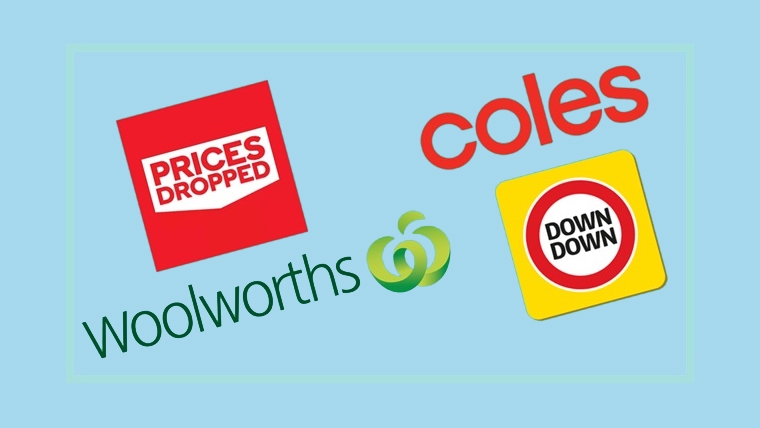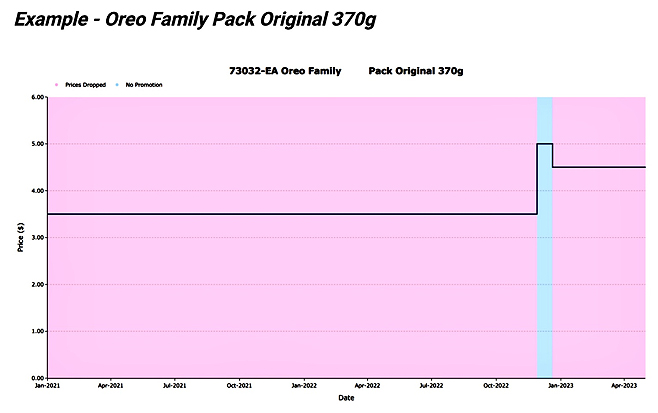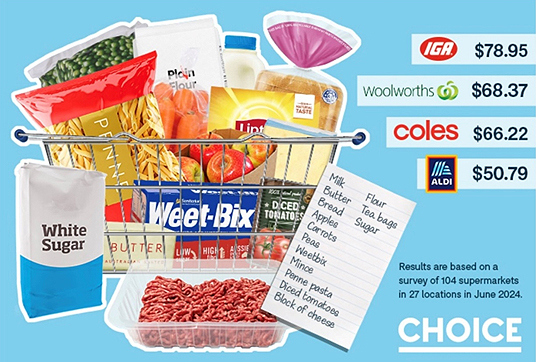
New Zealand’s supermarkets, and the country’s Grocery Commissioner, will be closely watching developments across the Tasman.
Those developments include the launch of a comprehensive inquiry into the supermarket sector, the introduction of a mandatory code of conduct for dealing with suppliers, the threat of business divestiture by the main opposition party, and now the commencement of legal proceedings against the sector’s two major players.
All this on top of being on the retail front line during a cost-of-living crisis.
The troubles began back in January when the federal government instructed the Australian Competition and Consumer Commission (ACCC), the nation’s competition regulator, to undertake an inquiry into the supermarket sector. Its scope extends to ‘the pricing practices of the supermarkets and the relationship between wholesale, including farmgate, and retail prices’.
The ACCC Chair Gina Cass-Gottlieb expressly acknowledged that grocery prices are ‘a major concern for the millions of Australians experiencing cost of living pressures’.
Just eight months later, the ACCC has now moved against Australia’s two largest supermarket chains, Woolworths and Coles. In separate legal proceedings in the Federal Court, the ACCC alleges that the two companies breached Australian Consumer Law ‘by misleading consumers through discount pricing claims on hundreds of common supermarket products’.
The essence of the allegation is that Woolies and Coles sold certain products for at least six months at regular prices, briefly increased those prices by at least 15%, and then dropped the prices and promoted those products as part of their discount programs – ‘Prices Dropped’ for Woolworths and ‘Down Down’ for Coles.
The ACCC alleges the promoted discounts were misleading ‘as the price of the products was in fact higher than or the same as the regular price at which the supermarket had previously offered the products for sale’.
The ACCC report includes the following example for Oreo biscuits sold by Woolworths.

Source: ACCC
The ACCC alleges that the regular price for this product was $3.50. The price was briefly raised to $5.00 before being promoted through the ‘Prices Dropped’ program at $4.50, a price that ‘was in fact 29 per cent higher than the product’s previous regular price of $3.50.’
The ACCC alleges that such discounting claims mislead consumers. Crucially, it also makes the following allegation.
In many cases both Woolworths and Coles had already planned to later place the products on a ‘Prices Dropped’ or ‘Down Down’ promotion before the price spike, and implemented the temporary price spike for the purpose of establishing a higher ‘was’ price.
The scale of the alleged activities was significant. In the case of Woolworths, it involved 266 products over a 20-month period including consumer favourites such as Tim Tams biscuits, Energizer batteries, Kellogg’s cereal, Palmolive dishwashing liquid, Raid insect spray, Sprite soft drink, Uncle Tobys muesli bars, and Vicks VapoDrops.
In the case of Coles, the ACCC alleges misleading discounting on 245 products over a 15-month period including staples such as Band-Aids, Bega cheese, Cadbury chocolates, Coca Cola soft drink, Colgate toothpaste, Kleenex tissues, Nescafe coffee, Palmolive shampoo, Sanitarium Weet-Bix cereal, and Whiskas cat food
According to ACCC estimates, the two supermarket giants ‘sold tens of millions of the affected products and derived significant revenue from those sales’.
If the ACCC is successful, the cost to Woolworths and Coles could be substantial, potentially in the millions of dollars. And that’s excluding the reputational damage which would be considerable at any time but could be far worse now when many Australians are struggling with household budgets.
And with inflation dominating the political discourse, the supermarkets can expect no sympathy from the nation’s politicians. An early indication was the response of Prime Minister Anthony Albanese to the news of the ACCC litigation – ‘If this is found to be true, it's completely unacceptable. This is not the Australian spirit. Customers don't deserve to be treated as fools by the supermarkets’.
‘Not the Australian spirit’ – it doesn’t get much harsher than that on this side of the Tasman.
Unsurprisingly, the response from the alleged wrongdoers has been restrained so far. In an announcement to the Australian Stock Exchange, Woolworths said it ‘will carefully review the claims made by the ACCC and will continue to engage with the ACCC on the matter.’ Coles told the ASX that it ’intends to defend the proceedings’.
Both companies expressed awareness of cost-of-living pressures on their customers.
They have a lot on their plate. In June the final report of a review of the Food and Grocery Code concluded that ‘the heavy imbalance in market power between supermarkets and smaller suppliers in Australia’s highly concentrated supermarket industry demands a mandatory code of conduct’. The government has accepted the recommendations of the review and this week an appropriate exposure draft was released. It includes new rules for supermarkets dealing with suppliers and significant penalties for breaches of the code.
And it’s not just the centre-left government attacking the supermarkets. In July, the centre-right Liberal/National Coalition, joined in the action. In what was surely a politically motivated move, the Coalition announced that it would ‘stand up for Australian small businesses, farmers, and consumers by delivering stronger penalties for anti-competitive behaviour’ by the supermarkets.
Those penalties would include ‘divestiture powers’ to ‘address serious allegations of land banking, anti-competitive discounting, and unfairly passing costs onto suppliers’. And the Coalition is even proposing a ‘Supermarket Commissioner’ to back up the penalties.
To top it all off, this week, Choice, an Australian consumer advocacy group, released a report entitled ‘Which supermarket has the cheapest groceries?’ The answer was neither Woolies nor Coles. By a remarkable margin, the winner of Choice’s ‘grocery basket mystery shop’ was Aldi.

Source: Choice Australia
Aldi is a privately owned large German multinational. It currently has 590 stores in Australia and more than 10% market share. It describes itself as ‘Australia's most affordable supermarket’ and there’s no doubt it provides real competition in the supermarket sector.
A muscular and expanding competitor, attacks from all sides of politics, pricing pressure from both customers and suppliers, and a regulator looking for blood. 2024 is fast shaping up as an annus horribilis for Woolworths and Coles. And with inflation still a hot political issue and an election expected in the next eight months, there’s little sign of a reprieve any time soon.
*Ross Stitt is a freelance writer with a PhD in political science. He is a New Zealander based in Sydney. His articles are part of our 'Understanding Australia' series.
We track a standard grocery list priced at both the New Zealand and Australian websites of Woolworths (Countdown). It is here.
Grocery price monitor
Select chart tabs
8 Comments
Amazing how the Aussie market is more competitive (They have IGA and Aldi in many places) than ours, yet the ACCC is finding more issues there, than our ComCom find here.
Makes you think.
Three possible scenarios:
- Despite their dominance, our Supermarkets are acting ethically,
- Our Supermarkets are better at hiding unethical issues,
- Our regulator is lazy.
Another possibility - our regulator is ideologically blinkered. Perhaps this is simply a subset of laziness
Really good article from the Aussie Institute on the supermarket duopoly and how FMCG brands also have to play the game.
- Rather than setting prices due to demand, or to compete against each other, it appears Coles and Woolworths often take turns offering specials.
- This ensures that they are never undercut by their duopoly partner and that they are effectively working together to compete against other grocery companies.
- Independent grocers are therefore always competing for customers who know such items are on sale at one of the two main supermarkets.
- The most egregious example of this is for the popular soft drink brands of Coke and Pepsi.
https://australiainstitute.org.au/post/coles-woolies-secret-pricing-dea…
Tacit collusion in action.
It's not as if supermarkets are the only players behaving this way, and nor are they the sole driver of "cost of living" issues.
At least these enquiries make it look like someone is doing something. But, it's simply more of the blame game.
It doesn't stop here. What's it going to be, constant enquiries into all other market sectors and practices? We've already had how many reports over the past years and nothing has changed. There may as well be an enquiry into the behaviour and practices of capitalism.
They don't need to collude, as there are only two of them. A bot that scrapes the opposition's website for their pricing and compares it to you own and is perfectly legal - but what you do with that information is something else again.
The zeitgeist seems to be: 'don't rock the pricing boat' becasue it's been profitable for a long time.
Time for action. There are enough reports already.
Big is not efficient. They make lots of money by control.
So break em up. Maximum 50 outlets in each group. (NW currently 250?). Up to them how they do that.
Allowing many new formats to emerge. It also allows entrance of new suppliers, that those are kept out limits our innovation as a food producing nation.
The big supermarket, big chain is not the only way we can get our food.

We welcome your comments below. If you are not already registered, please register to comment
Remember we welcome robust, respectful and insightful debate. We don't welcome abusive or defamatory comments and will de-register those repeatedly making such comments. Our current comment policy is here.